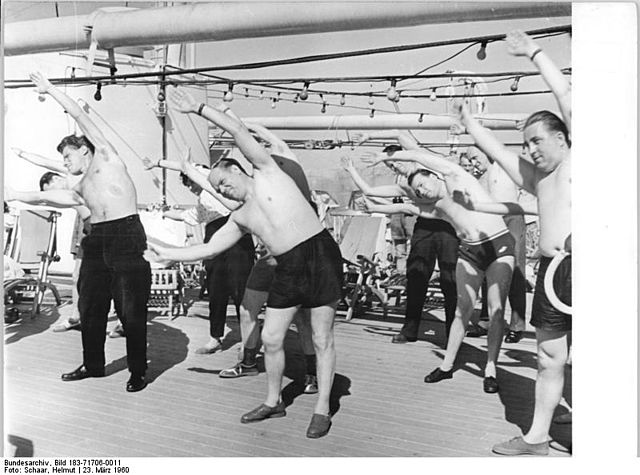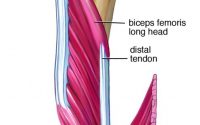Stretching: Back to the Past
Photo By Bundesarchiv, Bild 183-71706-0011 / Schaar, Helmut / CC-BY-SA 3.0.
Recently, there are many reports that claimed ‘‘static’’ stretching (holding a pose for anywhere from a few seconds to several minutes) temporarily reduces muscular power, weakens athletic performance and increases the risk of injury. Skeptics boldly claim that stretching is nothing more than a back scratch. Movement and fitness experts nowadays advise against static stretches before exercise but a greater emphasis on dynamic stretching. Now, a new comprehensive review of decades’ of research indicates that static stretches may have positive effects.
In January 2016, the journal Applied Physiology, Nutrition and Metabolism published a study by four exercise scientists (from Canada, Australia, USA and UK) who analyzed more than 200 studies of how stretching affects subsequent exercise. They found that static stretching can briefly inhibit the ability to generate power, however, those undesirable effects were generally found only if each stretch was held for more than 60 seconds and the subject then immediately became fully active, with no further warm-up. Those are hardly real-world conditions, most people are unlikely to hold a warm-up stretch for longer than about 30 seconds. The review found few negative impacts from these short stretches, especially if the volunteers followed that stretching with several minutes of basic warm-up movements. In fact, static stretch for at least five minutes during a warm-up can reduce incidences of injury.
The authors concluded that:
“Static stretching and PNF show no overall effect on all-cause injury or overuse injuries, but there may be a benefit in reducing acute muscle injuries with running, sprinting, or other repetitive contractions. Limited data indicate a potentially greater effect of SS and PNF on injury risk for longer stretch durations (>5 min of total stretch time of task-related multiple muscle groups). There is conflicting evidence as to whether stretching in any form before exercise can reduce exercise-induced muscle soreness. Hence, stretching in some form appears to be of greater benefit than cost (in terms of performance, ROM, and injury) but the type of stretching chosen, and the make-up of the stretch routine, will depend on the context within which it is used.”
The authors also recommended the following:
- Static stretching and PNF stretching are not recommended if prolonged (>60s total per individual muscle) stretching is employed within 5 min of an activity without subsequent dynamic activity (e.g. if prolonged stretching immediately precedes training or competition), unless the requirements for increases in ROM and/or decrease in (specifically) muscle injury outweigh the requirement for optimum physical performance.
- Injury reduction appears to require more than 5 min of total stretching of multiple task-related muscle groups. However, when an optimal pre-event warm-up with an appropriate duration of stretching is completed (i.e. initial aerobic activity, stretching component, task- or activity-specific dynamic activities) the benefits of static stretching and PNF stretching for increasing ROM and reducing muscle injury risk at least balance, or may outweigh, any possible cost of performance decrements.
- Static stretching also appears to enhance performance in activities performed at long muscle lengths.
- Dynamic stretching may induce moderate performance enhancements and may be included in the stretching component to provide task-specific ROM increases and facilitation of dynamic performance when performed soon before an activity, and/or when a full pre-activity routine is not completed; however there is no evidence as to whether it influences injury risk.
So whom should we believe now?
Dr Joe Muscolino gave an advice that “critically think instead of waiting for a study to tell me what to think.”
Source NYTimes, Applied Physiology, Nutrition, and Metabolism


